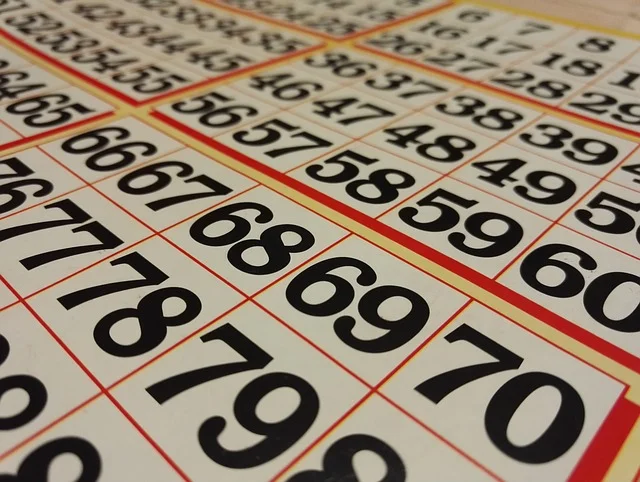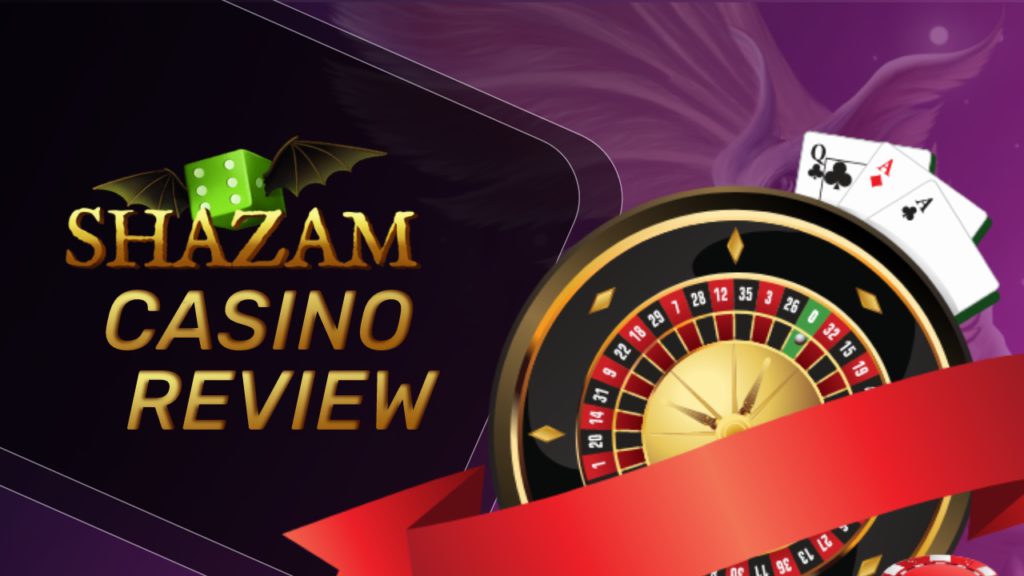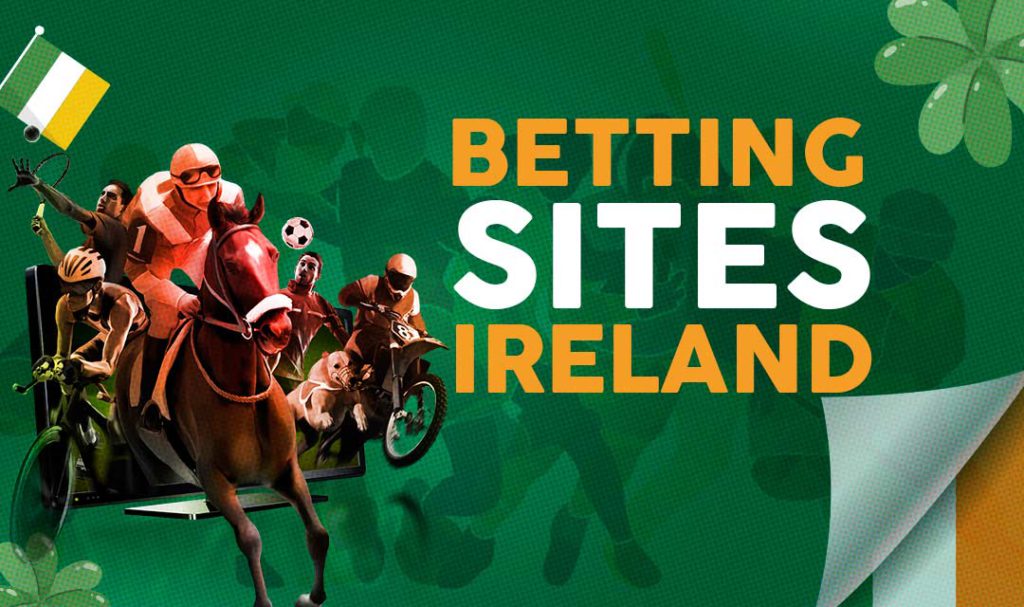Bingo Revenue in the UK: A Simple Game With an Incredible Financial Impact

When people think of gambling, a few games immediately come to mind: blackjack, roulette, slots, poker, maybe dropping a few bets on the ponies or the big game.
However, there’s another game that doesn’t quite get the same billing as those other, despite being just as lucrative (for the casinos, anyway): bingo.
Bingo isn’t just a mere curiosity, though. Its history is deeply intertwined with that of the post-WWII United Kingdom, and as the gambling world transitions from being dominated by brick-and-mortar establishments to online casinos and card rooms, bingo seems poised to grow right along with it.
But just how lucrative is bingo, anyway? A deeper examination into the revenue that the game provides will give a better understanding of its impact for gamblers, casinos, and society at large, as well as give some clue as to what the future holds for this ever-popular game.
A Brief History of Bingo in the UK
Like most forms of lotteries, bingo’s popularity dates back hundreds of years — but it really took off in the UK in the 1960s.
That’s due in large part to the passage of The Betting and Gaming Act of 1960.[1] That legislation legalized several different forms of gambling, with bingo being one of the most prominent.
Bingo immediately became massively popular, and by 1963, over a quarter of the population belonged to one bingo club or another.[2] Those clubs popped up all over the country, in small towns and big cities alike.
While bingo was massively popular for several decades, that popularity began to wane in the 1990s, thanks in large part to the creation of the National Lottery. Then, in 2007, it became illegal to smoke in pubs and similar places, and the ban deeply affected attendance at bingo parlors across the country.[3] The game appeared to be on a permanent decline.
That all began to shift in the 21st century, however, thanks to two key changes: a reduction in the tax rate levied against bingo parlors and the rise of internet gambling.
Bingo on the Internet
Bingo made its first appearance online sometime around 1996, but like most online gambling at that time, it would take several more years for it to truly hit its stride. As with brick-and-mortar bingo, it would take an act of Parliament to really unleash online bingo’s full potential.
The Gambling Act of 2005 allowed betting parlors and similar establishments to advertise with little regulation.[4] This brought in scores of new players, and money spent on those advertisements increased tenfold from 2005 to 2012.[5]
Not all of those were new players, of course. A good number of them were poached from brick-and-mortar establishments, and attendance at live bingo parlors waned as more players took advantage of the convenience offered by gambling on the internet.[6]
There was one more factor that greatly increased the game’s appeal: Facebook. The glut of free games like bingo offered on Facebook and similar social media sites introduced it to a whole new generation of players, many of whom then followed it into real-world gambling situations.
Online bingo has several advantages over the traditional variety, especially for players who prefer to gamble at home rather than socially. Internet bingo games are much easier to customize with special rules, appealing lights and sounds, and of course, massive jackpots.
Many sites offer the possibility of winning cash prizes to players who open free accounts. To win one of these modest prizes, a player merely needs to create an account — it’s not necessary to provide financial information. However, if the player then wins any money, they’ll have to give the site their banking information to retrieve it — and just like that, one of the most sizable hurdles to dabbling in online gambling has been removed.
All of this attracts a certain type of gambler — one that’s quite different from the traditional punter you’ll find playing other games.
A Profile of the Typical Bingo Player
Unlike most casino games, the typical bingo player is female, and the game is the most popular form of gambling for women after traditional lotteries and scratch-offs.[7]
Given that most gambling is a male-dominated endeavor, it’s not hard to see what would attract a woman to a game in which the typical player looks like them. Avoiding the male gaze is even easier if you limit your play to online casinos, which are especially popular for female bingo players.
The online version of the game makes for an attractive entry point for novice gamblers, many of whom enjoy the ability to learn the ins and outs without facing scrutiny from other players. Many online casinos have tried to dress up their bingo offerings with attractive graphics and flashy design that makes it more like a video game than a form of gambling, which also helps attract new players.
It’s also popular with players of lower socioeconomic status. While 7% of women overall in the UK play bingo, that number nearly doubles in areas suffering from deprivation.
These players tend to prefer games that aren’t terribly challenging and offer sizable jackpots, and online bingo meets both of those criteria. This causes them to play long, frequent sessions — and as will soon be apparent, that adds up to some serious revenue being generated.
Risks Associated with Playing Bingo
In recent years, a heavy emphasis has been placed on combating problem gambling, both in the UK and elsewhere. However, bingo is often exempt from these concerns, as it’s generally viewed as a “softer” form of gambling, with less risk of addiction or compulsive behavior.
Part of this is likely due to the fact that bingo is often played in seemingly benevolent circumstances; it’s a game played by schoolchildren and played at fundraisers for those very same kids, after all.
Bingo and Problem Gambling
However, researchers are beginning to see the game in a whole new light. While the social aspect of bingo may make it less attractive to the depression sufferers who make up the bulk of problem gamblers, that same feature may make it harder for players to quit for good.[8] Giving up bingo would mean abandoning the friendships forged and strengthened while playing bingo, in those cases.
Furthermore, the increasing popularity of bingo-style games on the internet may be chipping away at that same social structure. No longer is there a need to travel to a packed bingo hall and fraternize with other players in order to gamble; nowadays, bettors can do it from the comfort of their own homes, without talking to anyone.
As live bingo parlors become more desperate to attract and retain their clientele, they’ve begun offering incentives that may make it harder for problem gamblers to walk away, such as larger jackpots, rewards programs, and the like.[9]
What’s more, these gambling establishments have increasingly set their sights on the next generation of players, targeting an ever-younger audience. These players may be especially vulnerable to the problematic side of bingo, as they’ve been raised to believe it’s little more than harmless fun — after all, it’s not like school would introduce them to a potentially-addictive form of gambling.
Many bingo games — especially online — have also tried to piggyback on the enduring popularity of video games to attract a younger user base. Colorful graphics and progress-based rewards are just two of the strategies used by casinos to make gambling seem fun and harmless, a blueprint not unlike using a cartoon character to market cigarettes.
The early returns are promising, as bingo is growing in popularity with the younger demographic (it especially boomed during the COVID-19 pandemic and its related lockdowns).[10] It remains to be seen what long-term effects the whitewashing of this form of gambling will have on subsequent generations, however.
Bingo’s Effect on Physical and Mental Health
Playing bingo for money can have the same impact on a person’s physical and mental health as any other form of gambling — especially if they begin displaying signs of compulsive behavior. Disrupted sleep patterns, negatively-impacted personal relationships, and increased feelings of despair and helplessness are all common among problem gamblers.[11]
There is some data that indicates that bingo players are more likely to live sedentary lifestyles,[12] with even lower levels of activity on days in which they attend the bingo parlor. What’s more, these players seldom realize the impact that their gambling is having on their health, as they self-report much higher levels of activity than reality would dictate.
Older players are especially vulnerable, but the cause-and-effect sequence isn’t clear. They may be sedentary and enjoy bingo because of an injury that makes it difficult to exercise; playing bingo would give them the opportunity to get out and socialize without having an outsized impact on their injury.
People with preexisting health issues ranging from obesity to substance abuse are also more likely to begin gambling (including playing bingo), as well as struggle with quitting.[13] Again, it’s hard to know where to put the cart and the horse in this scenario, as the gambling may lead to depressive behaviors like overeating or substance abuse. Then again, obesity and addiction are also primary causes of depression, and they may in turn push sufferers towards gambling as a release.
Bingo Revenue in the UK
If the aim of both the Gambling Acts of 1960 and 2005 were to make betting into big business in the UK, it’s safe to say that both were wildly successful.
Betting — whether on sports, bingo, slots, or anything in between — went from being an activity reserved for back rooms and shady situations to something that’s practiced openly in pubs, casinos, and anywhere a person can get an internet signal to their mobile device.
As a result, gambling is booming in the UK — and the government has the receipts to prove it.
Total Revenue Generated by Bingo (Online and In-Person)
From April 2019 to March 2020, the gross gambling yield (GGY) reported by establishments in the UK topped £14.2 billion.[14] That’s the money the casinos make after paying out winnings, but before deducting operating costs. Regardless, it’s clear that serious cash is being made with gambling.
That number is technically down a bit — 0.6%, to be exact — from the year before, but there’s something to keep in mind in regards to the data: it was collected during a pandemic, when live betting establishments had been almost completely shuttered.
As you might expect, the lack of real-world gambling options drove millions of players onto the internet, and £5.7 billion of the GGY was earned via the internet, representing nearly 40% of the overall market — an increase of 8.1.% compared to the previous year.
How much of this was actually driven by bingo games — and, more specifically, online bingo games?
All told, there was £910 million generated by bingo in the UK over that time period. That’s all bingo games — online and brick-and-mortar combined.
Live bingo still drives much more revenue than its online counterpart, £635.9 million to £176.8 million. However, the trends favor the remote version of the game, as live bingo was down 5.7% while internet bingo grew 0.9% over that time period.
It’s important to remember, however, that this is all measured in GGY — if you look at gross revenue, the numbers go even higher, to well over £1 billion for all forms of bingo.
The Future of Bingo in the UK
As long as bettors are content to take their action to internet casinos and bingo parlors, it seems a near certainty that gaming establishments will continue to pour more resources into their online properties.
The COVID-19 pandemic likely only served to hasten the transition to online gaming for many players.[15] Months of being cooped up at home, with no access to live betting options whatsoever, doubtlessly inspired many players to dip their toes into the virtual waters — and it’s almost certain that many of them were hooked by what they found waiting for them there.
That doesn’t necessarily mean that the days of brick-and-mortar bingo halls are numbered, however. The game’s continuing popularity in a real-life setting — as well as the opportunities for socialization that such gaming provides — likely mean that bingo halls will be around for quite some time indeed.
However, the social aspect may be the primary thing that online casinos will begin to target — and as technology improves, they may be able to duplicate it quite effectively.
Virtual Reality Bingo?
Virtual reality technology may pose the biggest threat to in-person gaming. VR technology is already sophisticated enough to offer an immersive experience — something that video games and pornography are already learning to harness — and it may not be long until you can faithfully replicate the “feel” of the bingo hall right from your very own home.
Many online betting establishments already offer a “live casino” option, one in which players interact with a flesh-and-blood dealer via webcam. It certainly provides more of a human touch, but it can also feel like you’re gambling with your TV.
Virtual reality, on the other hand, offers the possibility of accurately recreating every aspect of the in-person experience, right down to the ability to speak to your friends or investigate your surroundings.
This replication of environment, when combined with online innovations like automatic card marking, can give online bingo a “best of all possible worlds” status. Players will be able to play in new locales that might not be geographically convenient, reconnect with non-local friends, and spend time socializing without losing the ability to win a pot.
Ultimately, there’s no limit to what can be done with virtual reality bingo — and it’s only a matter of time before we start to learn this lesson in earnest.
Hybridized and Non-Standard Bingo Games
Many live bingo halls are learning that, if they want to keep pace with the internet, they need to offer something that online casinos can’t. For many bingo halls, that thing is hybrid bingo.
Hybrid bingo is traditional bingo coupled with another activity — like dancing, perhaps. Hybrid bingo can also mean playing the game somewhere other than a stodgy old hall, like on a commuter train or in a vineyard.
These games are an excellent way for bringing new players to the hobby, as the secondary locale or activity could attract newcomers who wouldn’t otherwise be interested in a bingo night.
Of course, the corresponding risk is that, by making something other than bingo the main attraction, you could relegate the game to a mere distraction. This may be a better strategy for enticing the occasional hobbyist rather than the dedicated player.
Bingo Continues to Evolve, But Shows No Signs of Disappearing Anytime Soon
Regardless of the feelings one may have for bingo and other forms of gambling in the UK, there is little evidence to suggest that their popularity will ebb anytime soon, much less disappear completely.
The financial data suggests quite the opposite, in fact.
It’s much more likely that their real-world influence will begin to wane, however, as more and more players take their stakes to online casinos and bingo parlors to test their luck. Brick-and-mortar establishments may stick around for quite some time, but the march of time and progress make it unlikely that they can compete with their virtual counterparts in any meaningful capacity for much longer.
While this may be bad news for bingo hall owners, it’s a much rosier forecast for the average bettor. The future is likely to bring exciting new opportunities for the bingo player to scratch their itch — and they won’t even need to leave the house to do it.
“The Betting and Gaming Act, 1960,” J. Crim. Law, vol. 25, no. 2, pp. 149–155, Apr. 1961.
MercoPress, “The Effect of Bingo on the UK Economy: An Ever-Growing Market,” MercoPress, 2020. [Online]. Available: https://en.mercopress.com/2020/08/31/the-effect-of-bingo-on-the-uk-economy-an-ever-growing-market. [Accessed: 16-Jun-2021].
Policy Navigator, “Smoking ban in England,” Policy Navigator, 2007. [Online]. Available: https://navigator.health.org.uk/theme/smoking-ban-england. [Accessed: 16-Jun-2021].
GOV.UK, “Review of the Gambling Act 2005 Terms of Reference and Call for Evidence,” GOV.UK. [Online]. Available: https://www.gov.uk/government/publications/review-of-the-gambling-act-2005-terms-of-reference-and-call-for-evidence/review-of-the-gambling-act-2005-terms-of-reference-and-call-for-evidence. [Accessed: 16-Jun-2021].
M. Stead, F. Dobbie, K. Angus, R. I. Purves, G. Reith, and L. Macdonald, “The online bingo boom in the UK: A qualitative examination of its appeal,” PLoS One, vol. 11, no. 5, May 2016.
Gambling Commission, “Industry statisticsApril 2011 to March 2015(Updated to include October 2014 to September 2015),” Gambling Commission, 2016. [Online]. Available: https://modgov.hillingdon.gov.uk/documents/s34258/Appendix 1 – Gambling Commission Industry Statistics.pdf. [Accessed: 16-Jun-2021].
M. Griffiths and C. Bingham, “Bingo playing in the UK: The influence of demographic factors on play,” Int. Gambl. Stud., vol. 2, no. 1, pp. 51–60, Jul. 2002.
C. Chapple and S. Nofziger, “Bingo!: Hints of deviance in the accounts of sociability and profit of bingo players,” Deviant Behav., vol. 21, no. 6, pp. 489–517, Nov. 2000.
J.-C. Moubarac, N. W. Shead, and L. J. Derevensky, “View of Bingo playing and problem gambling: A review of our current knowledge | Journal of Gambling Issues,” The Centre for Addiction and Mental Health, 2010. [Online]. Available: https://jgi.camh.net/index.php/jgi/article/view/3829/3861. [Accessed: 16-Jun-2021].
M. A. Emond, B. S. Collard, A. Nairn, and I. L. Hollen, “Gambling by young adults in the UK during COVID-19 lockdown,” University of Bristol, 2021. [Online]. Available: https://research-information.bris.ac.uk/en/publications/gambling-by-young-adults-in-the-uk-during-covid-19-lockdown. [Accessed: 16-Jun-2021].
T. W. Fong, “The biopsychosocial consequences of pathological gambling.,” Psychiatry (Edgmont)., vol. 2, no. 3, pp. 22–30, Mar. 2005.
G. C. Ryde et al., “How active are women who play bingo: A cross-sectional study from the Well!Bingo project,” BMC Womens. Health, vol. 17, no. 1, Jul. 2017.
D. W. Black, M. Shaw, B. McCormick, and J. Allen, “Pathological gambling: Relationship to obesity, self-reported chronic medical conditions, poor lifestyle choices, and impaired quality of life,” Compr. Psychiatry, vol. 54, no. 2, pp. 97–104, Feb. 2013.
Gambling Commission, “Industry Statistics – November 2020,” Gambling Commission, 2020. [Online]. Available: https://beta.gamblingcommission.gov.uk/statistics-and-research/publication/industry-statistics-november-2020. [Accessed: 16-Jun-2021].
ScienceDaily, “Study shows online gambling soared during lockdown, especially among regular gamblers,” ScienceDaily, 2021. [Online]. Available: https://www.sciencedaily.com/releases/2021/05/210517083636.htm. [Accessed: 16-Jun-2021].
Latest articles

Latest Americas Cardroom Promo...

Best Sports Betting Sites in N...

Shazam Casino Review – Shazam ...












